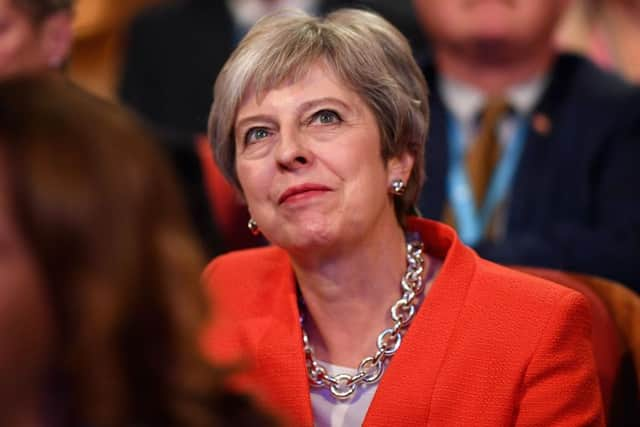What does the latest Brexit stalemate mean for Scotland?
Mrs May officially wanted to update MPs on the progress of her negotiations with European leaders as the UK prepares to leave the EU.
However, the Prime Minister was keen to avoid confronting what seemed like the self evident truth of the past few weeks – that no significant progress in the negotiations had been made.
Advertisement
Hide AdAdvertisement
Hide AdTo the evident frustration of some of her more hard Brexit inclined colleagues, Mrs May stressed that she is still confident of getting a deal with the EU.


In Scottish terms, there was significant issues arising over an otherwise quiet weekend – as reports emerged that Ruth Davidson and David Mundell could resign over a proposed solution to the Northern Ireland questions.
For her part, Nicola Sturgeon announced an alternative approach to Brexit in London that was meaningful, if drowned out a little by noise from the House of Commons.
As a key Brexit summit looms, we look at how the current impasse might impact Scotland.
The ‘backstop’
In news that won’t shock anyone who has been paying attention, the Prime Minister confirmed that the discussions over a ‘backstop’ on the Irish border was a particular sticking point in the negotiations.
A backstop, in as simple terms as possible, is a fail-safe that would ensure that goods (and more importantly people) can cross the Northern Ireland – Ireland border without physical checks or barriers.
Border communities in both countries are especially keen to avoid the possibility of checks or other infrastructure, understandable given its fluid nature, with many crossing between the two territories multiple times a day.
It is proposed that the backstop would come into effect should a wider deal between the UK and the EU failing to materialise.
Scottish response
Advertisement
Hide AdAdvertisement
Hide AdNicola Sturgeon has quickly seized on the Northern Irish backstop proposal and proposed that Scotland (which, like the province, voted to remain in the European Union) be given its own deal to remain in the EU single market even as the rest of the UK leaves.
The First Minister said: ““If we are looking down the road to a situation where Belfast is still in the single market, and Glasgow is not, then any responsible First Minister of Scotland is going to say ‘that’s a big worry for us’.”
That has seen an unlikely alliance formed between Scots Tory leader Ruth Davidson and the DUP’s Arlene Foster.
The duo, along with Scottish Secretary David Mundell, are opposed to any action that they say could harm the integrity of the Union.
It emerged on Sunday that Ms Davidson and Mr Mundell had threatened to resign in a letter to the Prime Minister, although the latter has since distanced himself from a move that drastic.
The Future
Tomorrow, the Prime Minister will take her baggage and her Chequers proposals to a meeting of EU leaders.
The discussions in Salzburg will likely centre around the UK’s withdrawal, which is due to be formalised in less than six months.
If a backstop deal is reached (it is unlikely to happen this week, and looks increasingly unlikely to happen at all), that keeps Northern Ireland even temporarily in the single market, the SNP will only step up their campaign for a similar arrangement for Scotland.
Advertisement
Hide AdAdvertisement
Hide AdNicola Sturgeon has urged MPs to reject a bad deal, and should that loom ahead of the final, crunch summit in November, she will likely take a more prominent, even UK-wide role in setting out her opposition to a deal which sees all 4 countries of the union leave the single market.
The Scottish Conservatives, for their part, will continue to impress on the Prime Minister (with whom they hold significant sway given parliamentary arithmetic) the importance of prioritising one union even as Britain leaves another.
Whatever happens over the next days and months, Brexit will continue to dominate political debate in Scotland and beyond.
